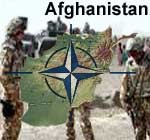
On 20 March 2003, the US invaded Iraq with a false pretext that the latter was a threat to the world because it possessed weapon of mass destruction (WMD). There was another weak excuse that the President George W Bush spoke about in every speech in those days was that the US military invasion of Iraq was absolutely necessary to secure it from the brutal dictatorship of Saddam Hussein, to set people free from the yoke of one-man show and bring back democratic governance. None of it accomplished except death penalty to Saddam in a mysterious way, which, now seemed to the world that it was nothing more than a personal ego war due to which President Bush took revenge on Iraqi dictator.
Today, Iraq is a complete mess. So is Afghanistan becoming, and so will Pakistan become in near future. In fact, wherever, the US has made military intervention, the attacked country turned into horrible ghost town. Remember Vietnam, where more than 2.5 million people were butchered during 16 years (1959-1975) of US military operation.
After the fall of Saddam, the world could know the pretext of the war was patently false that the US had vehemently campaigned and the Iraq war was bound to be a big failure. Defying all international conventions and pleas, President Bush attacked Iraq and turned it into the Dark Age and the entire world into an unprecedented economic doom. The world must know the cost of Iraq war. The official figure puts it between US $57 to US $69 billion. However, there is a discrepancy in it.
When Larry Lindsey, President’s economic adviser, put forward the cost in tune with US $200 billion, the Defence Secretary Donald Rumsfeld dismissed it saying it was a “balcony” estimate. But what is the cost of war after six years? In their book The Three Trillion Dollar War: The True Cost of the Iraq Conflict, the Nobel Prize winner (Economics) Joseph Stiglitz along with Linda J. Bilmes of Harvard University’s Kennedy School of Government had estimated in 2008 the cost of the Iraq war would be more than US $ 3 trillion. The huge monetary cost of war has had significant implications for the social security and welfare measures within the US. The National Priorities Project website estimates that the budgetary amount spent on the war could have provided for nearly 5,103,740 Affordable Housing Units or 193,370,980 people with health care for one year.
Human cost is far greater a concern since it has affected the society and economy of Iraq. On the military side, 4,576 military personnel died from the coalition forces out of which 4,259 were Americans, 179 Britons, 33 Italians, 22 Poles, 18 Ukrainians, 11 Spaniards, 13 Bulgarians, etc. According to Iraq Body Count website, the number of civilian deaths in Iraq has touched 100,000 mark. But this is not the end of mess here. With the Iraqi government grappling to put things in control, weakening structure of accountability and increasing corruption is another big issue to tackle. Can anyone dare to ask the US: whose interests did the Iraq invasion serve?
Now turn to the problems of the US military personnel. According to a survey by the American Psychiatric Association, 32 per cent of marines who were sent to Iraq and Afghanistan suffered from mental health complaints. Rising suicide rate among military personnel is another shocking trend, for example, in 2007; at least 115 soldiers killed themselves, while it was 102, and 87 and 67 in 2006, 2005 and 2004 respectively.
Given the ‘out-of-control’ situation in Iraq, President Obama’s decision to end the Messianic war in Iraq is a welcome move. However, it remains to be seen whether the hawks in the US administration will allow Obama to go ahead with his plan. As of now, a total of 142,000 of US marines are stationed in Iraq, out of this, 92, 000 will be brought home in the next 18 months. The remaining 50,000 will continue till 31 December 2011.
|
|


Comments: